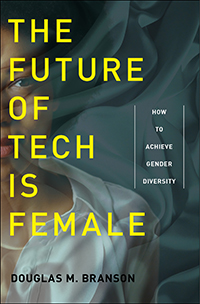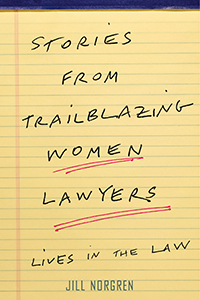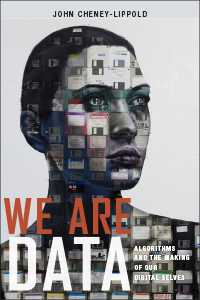It’s that time of year, the new year, where you promise yourself and maybe the world (per your Instagram story) that you’re going to change five things about you and your lifestyle. #NewYearNewYou, right?
If you’re anything like us, the “I’m only going to drink one cup of coffee a day” resolution is not going to last. Promptly, on January 10th, we slip up and just need to drown in another cup.
So, instead of stressing out about resolutions we’re just going to break, we’re focusing on one we know we’ll keep: “Read more.”
#NewYearNewYouNewBook(s)!
We’re hoping that you join us with this resolution, and to sweeten the pot, we’ve got a special offer of $1.99 eBooks on some delightful titles. Peruse the titles below and click on the cover to find your way to a $0.99 eBook, making this fun resolution all the easier for you! So grab your eReader and turn those pages!
Click on any of the covers to find the eBook for your device available for order online for $0.99!*
*offer good from 01/06/2019 until 01/13/2019
If your resolution is to read more about being a boss—in the workplace, in the courtroom, in HTML…
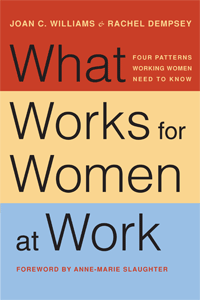 What Works for Women at Work
What Works for Women at Work
Four Patterns Working Women Need to Know
By Joan C. Williams and Rachel Dempsey
Foreword by Anne-Marie Slaughter
Based on interviews with 127 successful working women, over half of them women of color, What Works for Women at Work presents a toolkit for getting ahead in today’s workplace. Distilling over 35 years of research, Williams and Dempsey offer four crisp patterns that affect working women: Prove-It-Again!, the Tightrope, the Maternal Wall, and the Tug of War. Each represents different challenges and requires different strategies—which is why women need to be savvier than men to survive and thrive in high-powered careers. Williams and Dempsey’s analysis of working women is nuanced and in-depth, going far beyond the traditional cookie-cutter, one-size-fits-all approaches of most career guides for women.
You can also order the ebook of the Workbook for $0.99, offering women a hands-on guide filled with interactive exercises, self-diagnostic quizzes, and action-oriented strategies for building successful careers.
“Written by a mother-daughter duo, this decidedly unwonky examination of gender bias doubles as a playbook on how to transcend and triumph.”—Abbe Wright, O, The Oprah Magazine
“Deftly combining sociological research with a more casual narrative style, What Works for Women at Work offers unabashedly straightforward advice in a how-to primer for ambitious women.”—Debora L. Spar, The New York Times Book Review
“The book offers an accessible and sound model of problems faced by women climbing the corporate ladder, and presents clear strategies to take while waiting for business to catch up.”—Publishers Weekly
“In their compelling new book, Williams…and Dempsey…spell out the two sets of rules, higher standards and closed doors that many women encounter on the job these days.”—Kerry Hannon, Forbes
The Future of Tech Is Female
How to Achieve Gender Diversity
By Douglas M. Branson
Tech giants like Apple and Google are among the fastest growing companies in the world, leading innovations in design and development. The industry continues to see rapid growth, employing millions of people: in the US it is at the epicenter of the American economy. So why is it that only 5% of senior executives in the tech industry are female? Underrepresentation of women on boards of directors, in the C-suite, and as senior managers remains pervasive in this industry. As tech companies are plagued with high-profile claims of harassment and discrimination, and salary discrepancies for comparable work, one asks what prevents women from reaching management roles, and, more importantly, what can be done to fix it? The Future of Tech is Female considers the paradoxes involved in women’s ascent to leadership roles, suggesting industry-wide solutions to combat gender inequality. Branson unpacks the plethora of reasons women should hold leadership roles, both in and out of this industry, concluding with a call to reform attitudes toward women in one particular IT branch, the video and computer gaming field, a gateway to many STEM futures.
“This is a crucial book on a crucial subject. Douglas Branson brings a wealth of expertise and research to a field sorely in need of both. The barriers to women in the tech industry are persistent and pervasive, and Branson does masterful work in identifying the greatest challenges and most promising responses. It is neither just nor cost effective for tech companies to fail to take advantage of a talent pool that is increasingly female.”—Deborah Rhode, E.W. McFarland Professor of Law, Stanford University
Stories from Trailblazing Women Lawyers
Lives in the Law
By Jill Norgren
In Stories from Trailblazing Women Lawyers, award-winning legal historian Jill Norgren curates the oral histories of one hundred extraordinary American women lawyers who changed the profession of law. Many of these stories are being told for the first time. As adults these women were on the front lines fighting for access to law schools and good legal careers. They challenged established rules and broke the law’s glass ceiling.Norgren uses these interviews to describe the profound changes that began in the late 1960s, interweaving social and legal history with the women’s individual experiences. The interviews, made available to the author, permit these women to be written into history in their words, words that evoke pain as well as celebration, humor, and somber reflection. These are women attorneys who, in courtrooms, classrooms, government agencies, and NGOs have rattled the world with insistent and successful demands to reshape their profession and their society. They are women who brought nothing short of a revolution to the profession of law.
“Jill Norgren has written a compelling portrait of women on the front lines of the ongoing struggle for gender equality in the legal profession. Her book eloquently describes a central feature of the civil rights revolution that continues today, and reminds us not to take for granted the hard-won victories of those whose stories she tells.”—John Shattuck, author of Freedom on Fire: Human Rights Wars and America’s Response
Chained to the Desk (Third Edition)
A Guidebook for Workaholics, Their Partners and Children, and the Clinicians Who Treat Them
By Bryan E. Robinson
“Bryan Robinson was way ahead of the times in describing what has now undeniably become the disease of our times. Chained to the Desk provides a rich, comprehensive understanding of how workaholism often mistaken for productivity and fueled more than ever by technology is taking an insidious toll on our lives, individually and collectively. Robinson¹s findings and compelling stories have been reverberating in my mind now for weeks.”—Tony Schwartz, author of Be Excellent at Anything
Click on any of the covers to find the eBook for your device available for order online for $0.99!*
*offer good from 01/06/2019 until 01/13/2019
If you want to read more about challenging the norm…
Fat Shame
Stigma and the Fat Body in American Culture
By Amy Erdman Farrell
“As part of an actual campaign against weightism, as opposed to Colbert’s satirical one, Fat Shame allows us to see how discrimination against fat people became a central feature of American life. Armed with this history, we can better imagine a day when the declaration Farrell made on The Colbert Report—”I like the word ‘fat'”—won’t be greeted with laughter.”—Bitch Magazine
 Jewish Radical Feminism
Jewish Radical Feminism
Voices from the Women’s Liberation Movement
By Joyce Antler
Jewish women were undeniably instrumental in shaping the women’s liberation movement of the 1960s, 70s, and 80s. Yet historians and participants themselves have overlooked their contributions as Jews. This has left many vital questions unasked and unanswered—until now. Delving into archival sources and conducting extensive interviews with these fierce pioneers, Joyce Antler has at last broken the silence about the confluence of feminism and Jewish identity. Antler’s exhilarating new book features dozens of compelling biographical narratives that reveal the struggles and achievements of Jewish radical feminists in Chicago, New York and Boston, as well as those who participated in the later, self-consciously identified Jewish feminist movement that fought gender inequities in Jewish religious and secular life. Recovering this deeply hidden history, Jewish Radical Feminism places Jewish women’s activism at the center of feminist and Jewish narratives.
“From consciousness-raising groups, to health collectives, to militant lesbians and women standing up to religious patriarchy, historian Antler spends time with the dozens of Jewish personalities of radical feminist movements—women who challenged the structure of society far beyond the reach of laws.”—Lilith
“The role of Jewish women in the feminist struggle was never fully explained. Jewish Radical Feminism fills this gap both in the history of modern Judaism and feminism. This valuable study is a tribute to the struggle of these pioneer Jewish feminists.”—Washington Book Review
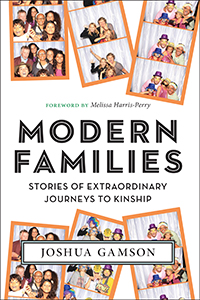 Modern Families
Modern Families
Stories of Extraordinary Journeys to Kinship
By Joshua Gamson
Foreword by Melissa Harris-Perry
From adoption and assisted reproduction, to gay and straight parents, coupled and single, and multi-parent families, the stories in Modern Families explain how individuals make unconventional families by accessing a broad range of technological, medical and legal choices that expand our definitions of parenting and kinship. Joshua Gamson introduces us to a child with two mothers, made with one mother’s egg and the sperm of a man none of them has ever met; another born in Ethiopia, delivered by his natural grandmother to an orphanage after both his parents died in close succession, and then to the arms of his mother, who is raising him solo. A companion for all those who choose to navigate the world of modern kinship, Modern Families provides a “fascinating look at the remarkable range of experiences that is broadening the very idea of family” (Booklist).
“[T]hese tales are…a warmhearted and normalizing look at some rare kinds of families.”—Choice
“[A] fascinating look at the remarkable range of experiences that is broadening the very idea of family.”—Booklist
The Trans Generation
How Trans Kids (and Their Parents) are Creating a Gender Revolution
By Ann Travers
Based on interviews with transgender kids, ranging in age from 4 to 20, and their parents, and over five years of research in the US and Canada, The Trans Generationoffers a rare look into what it is like to grow up as a trans child. From daycare to birthday parties and from the playground to the school bathroom, Travers takes the reader inside the day-to-day realities of trans kids who regularly experience crisis as a result of the restrictive ways in which sex categories regulate their lives and put pressure on them to deny their internal sense of who they are in gendered terms. The book shows the incredible time, energy, and love that these parents give to their children, even in the face of, at times, unsupportive communities, schools, courts, health systems, and government laws. Ultimately, the book is meant to open up options for kids’ own gender self-determination, to question the need for the sex binary, and to highlight ways that cultural and material resources can be redistributed more equitably. The Trans Generation offers an essential and important new understanding of childhood.
“Given that trans children are subjected to harassment, bullying, and systemic lack of support, there’s no better time than now to have this book as a resource.”—Bitch Magazine
“Ann Travers’s The Trans Generation is an astounding and essential qualitative study that collects heartfelt, honest anecdotes from a variety of transgender children and their parents.”—Foreword
Click on any of the covers to find the eBook for your device available for order online for $0.99!*
*offer good from 01/06/2019 until 01/13/2019
If you want to read more about the world around you…
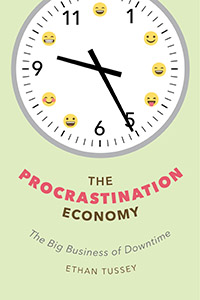 The Procrastination Economy
The Procrastination Economy
The Big Business of Downtime
By Ethan Tussey
“[An] engrossing study. Tussey’s book is likely to strike a chord…with the many readers who see their smartphones and other mobile devices as a help, rather than hindrance, to their lives. He has crafted a thoughtful…approach to a pervasive aspect of modern life.”—Publishers Weekly
We Are Data
Algorithms and the Making of Our Digital Selves
By John Cheney-Lippold
“A heady and rewarding explanation of our lives in the data age. [Cheney-Lippold’s] discussion of privacy…will fascinate many. Essential reading for anyone who cares about the internet’s extraordinary impact on each of us and on our society.”—Starred Kirkus Reviews
“The text moves beyond overdone topics of online privacy to look at how the lack of privacy of our data impacts identities… It is the most appropriate for social science researchers and students.”—Choice
Must We Defend Nazis?
Why the First Amendment Should Not Protect Hate Speech and White Supremacy
By Richard Delgado and Jean Stefancic
Swirling in the midst of the resurgence of neo-Nazi demonstrations, hate speech, and acts of domestic terrorism are uncomfortable questions about the limits of free speech. Updated to consider the white supremacy demonstrations and counter-protests in Charlottesville and debates about hate speech on campus and on the internet, the book offers a concise argument against total, unchecked freedom of speech. Delgado and Stefancic instead call for a system of free speech that takes into account the harms that hate speech can inflict upon disempowered, marginalized people. As citizens are confronting free speech in contention with equal dignity, access, and respect, Must We Defend Nazis? puts aside clichés that clutter First Amendment thinking, and presents a nuanced position that recognizes the needs of our increasingly diverse society.
“Delgado and Stefancic are leading figures in the ‘critical race theory’ movement, a legal approach that sees law through the prism of race. They are, of course, correct in pointing to racial inequality in all areas of American life and to the abuse some minority students suffer at the hands of some insensitive white students.”—Alan M. Dershowitz, The Washington Post
“The book’s value is in starting a debate.”—Choice
Click on any of the covers to find the eBook for your device available for order online for $0.99!*
*offer good from 01/06/2019 until 01/13/2019


